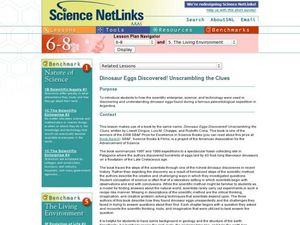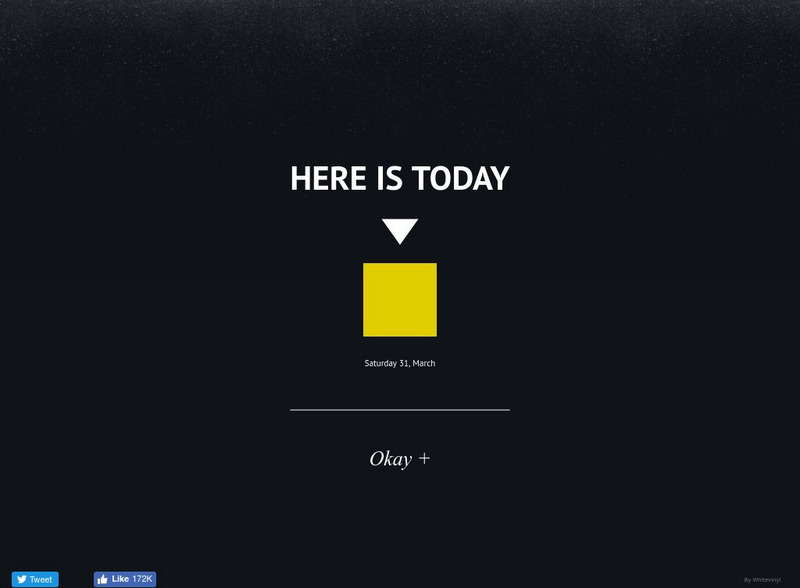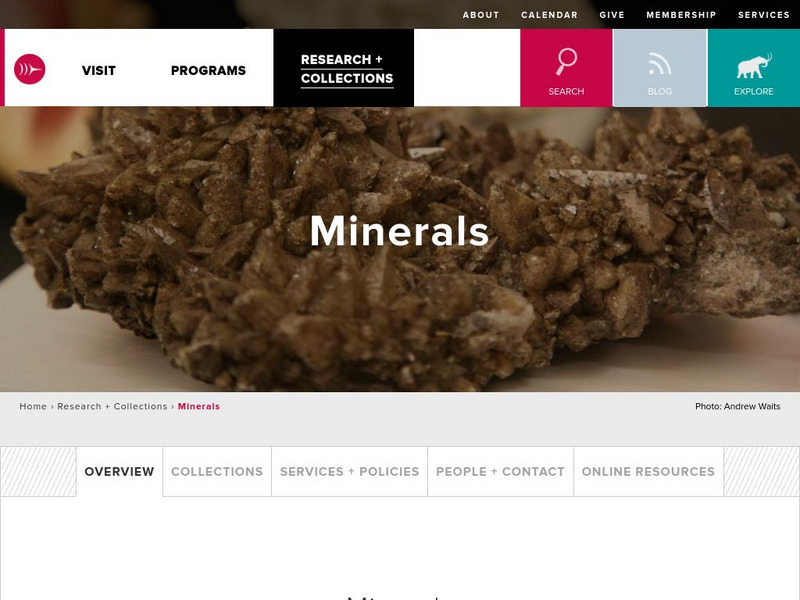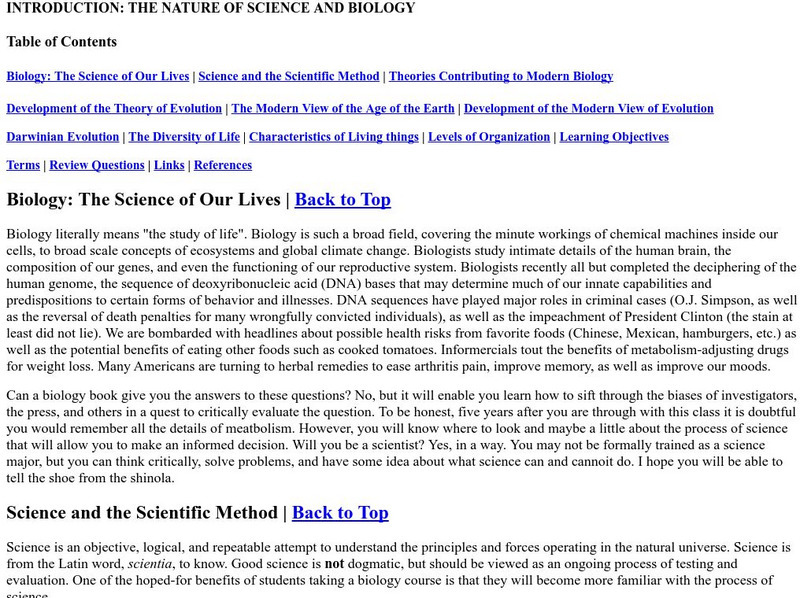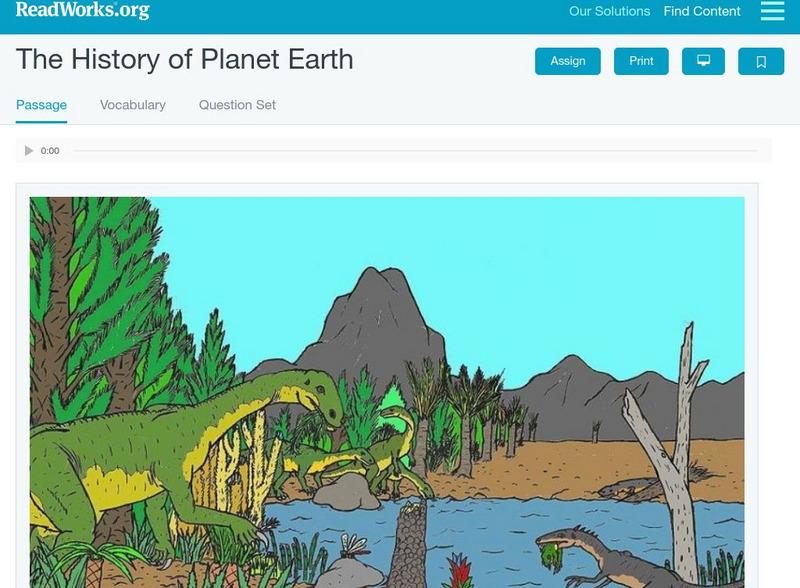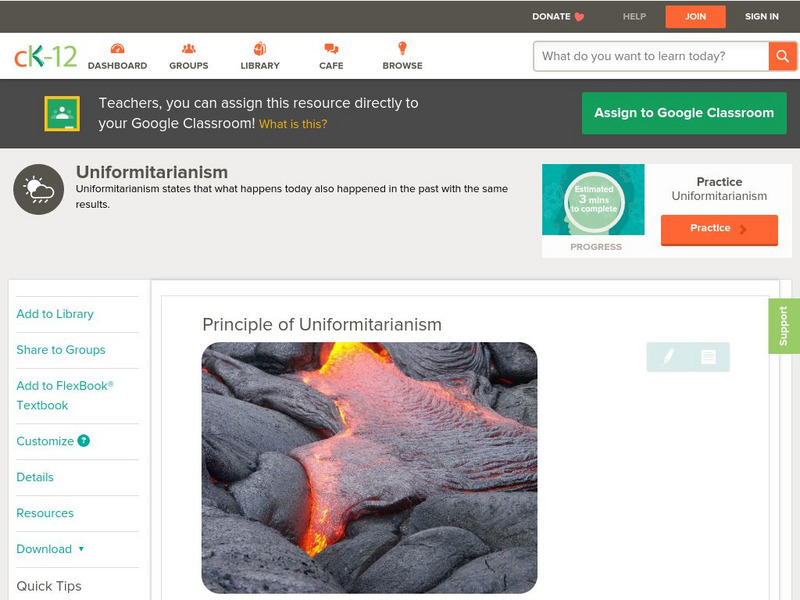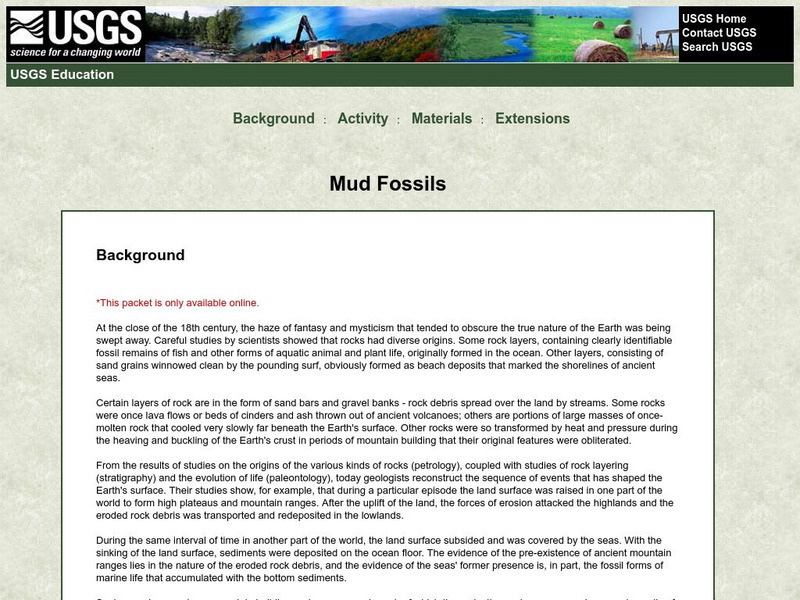National Science Teachers Association
Adopt-a-Dino
Earth historians research a specific dinosaur, write a paper about the Mesozoic era that it lived in, create an artistic rendition of the environment, and give a presentation in class about what they learned. Be aware that there are...
Curated OER
Dinosaur Eggs Discovered! Unscrambling the Clues
Just a heads up: this lesson is based on a book, Dinosaur Eggs Discovered! Unscrambling the Clues. If you do not have or do not want to purchase the book, you may still find the other activities and worksheets useful in your earth...
Curated OER
Ice Ages
Interested Earth enthusiasts are introduced to ice ages. The 26,000-year cycle is charted and the eras named. Several slides are dedicated to the carbon cycle and how it contributes to the changes. The reasons for the cooling of the...
Curated OER
Making The Geologic Time Scale Real
Students construct a geologic timeline the size of a football field. They work in small groups to calculate the yardage for significant events in the Earth's history and then as a class pace out all of the events.
Curated OER
Making Materials for Parts of a Fossil
Students create fossil books to study the process for crinoid fossilization. In this fossils lesson, students color and identify the fossilization process of a crinoid. Students then create a booklet out of the information.
Science Education Resource Center at Carleton College
Serc: Radioactive Decay Calculator
Students will use this online Radioactive Decay Calculator to compute radioactive decay, timed decay, and timed solid disposal for a databank containing 116 isotopes. This calculator also features University of British Columbia disposal...
PBS
Pbs Teachers: Origins: The Origins Game
Choose the location on an interactive world map to locate where historical scientific events took place. Test your knowledge of various notable accomplishments and discoveries related to the origins of the universe and the Earth.
Other
Here Is Today
Take a look at this snapshot in time of Earth's history. This interactive timeline shows a unique perspective of where we are in historical and geologic time.
Burke Museum
Burke Museum: Research and Collections: Geology
Under the heading "Research and Collections," this site details the information on Geology provided by the Burke Museum. Four online geology exhibits are listed and can be accessed by link.
Smithsonian Institution
National Museum of Natural History: Paleobiology: Geologic Time: The Oligocene
Travel through Earth's history to learn about the Oligocene time period, which is characterized by the appearance of most of the living families of mammals.
Untamed Science
Untamed Science: Biology: Evolution: History of Life: The Cambrian Explosion
Learn about the Earth's evolutionary history during the Cambrian period. [3:25]
University of California
University of California Museum of Paleontology: Stories From the Fossil Record
This colorful, interactive site demonstrates how fossils can be used to discover a range of information about the past. Topics include Past Lives, Paleoecology, Geologic History, and Biodiversity.
American Museum of Natural History
American Museum of Natural History: O Logy: What's the Big Idea? Earth
Find an overview of the Earth and some of the approaches scientists take in studying it, in this click-through series of short perspectives on the topic.
Science Education Resource Center at Carleton College
Serc: How Old Is That Thing on That Rock?
Students using magnifying glasses to observe collected fossils, and then make inferences and hypotheses about the age of the specimens.
Estrella Mountain Community College
Online Biology Book: The Nature of Science and Biology
Use the scientific reasoning and critical thinking to take an in-depth look at the basics of biology.
Other
Earth History: The Paleomap Project
The Paleomap Project illustrates the plate tectonic development of the ocean basins and continents, as well as the changing distribution of land and sea during the past 1,100 million years.
Read Works
Read Works: The History of Planet Earth
[Free Registration/Login Required] This informational text passage shares information about the history of the earth and its landforms. This passage is a stand-alone curricular piece that reinforces essential reading skills and...
CK-12 Foundation
Ck 12: Earth Science: Principle of Uniformitarianism
How to use information from the present to understand the past.[Free Registration/Login may be required to access all resource tools.]
PBS
Pbs: Nova: Learning About Earth's History With Ice Cores
This resource explains how ice cores are used to analyze past events like air pollution, volcanic activity, climate changes, and radioactivity.
US Geological Survey
U.s. Geological Survey: Mud Fossils
Two part lesson allows for students to observe real fossils then make and recover their own fossils using mud.
CK-12 Foundation
Ck 12: Plate Tectonics and Seas of the Paleozoic and Mesozoic Era Study Guide
[Free Registration/Login may be required to access all resource tools.] Provides a brief overview of plate tectonic activity during the Paleozoic and Mesozoic eras and the changes in sea level that occurred. Includes some questions to...
CK-12 Foundation
Ck 12: Earth Science: Earth History and Clues From Fossils Study Guide
This comprehensive study guide covers the main terms and concepts needed for an earth science unit on what we can learn about the early earth from fossils. Review questions are included at the bottom of the study guide.
CK-12 Foundation
Ck 12: Earth Science: Early Atmosphere and Oceans Study Guide
This comprehensive study guide covers the main terms and concepts needed for an earth science unit on the early atmosphere and oceans. Review questions are included at the bottom of the study guide.
CK-12 Foundation
Ck 12: Earth Science: Determining Relative Ages Study Guide
This comprehensive study guide covers the main terms and concepts needed for an earth science unit on determining relative ages. Review questions are included at the bottom of the study guide.



